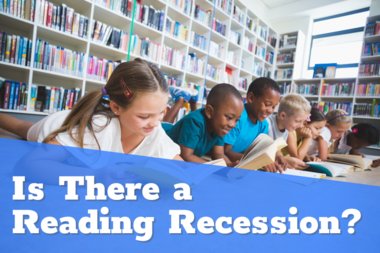Top Tips for Engaging with Parents
Teachers and parents have a shared interest in doing the best for their children. But parental engagement is a tough nut to crack and building healthy relationships to make a true learning community requires sustained effort and support.
Productive dialogue and effective relationships oil the school machine and can make a real difference to children’s well-being, learning and development. When parental engagement is high, research shows that this can lead to learning gains of +3 months over the course of a year.
Approximately 80% of the difference in how well children do at school depends on what happens beyond the school gates (Rasbash et al, 2010).
Surprisingly, many schools report that they don’t have a clear plan for how they work with parents, and less surprisingly, very few teachers have had parental engagement CPD.
In 2018, the Education Endowment Foundation published a guidance report that reviewed the best available research to offer schools and teachers recommendations to support parental engagement in children’s learning.
These aren’t necessarily ‘new’ but they have all been shown to work to drive commitment and growth and demonstrate that parental engagement must be a priority, not a bolt-on extra.
Working with Parents to Support Children’s Learning makes four clear and actionable recommendations:
-
Critically review how you work with parents
Schools should look at what works and base decisions on evidence. The report says that different methods are needed for different ages. Schools should consult and have conversations with parents who are less involved about what support they would find helpful and plan and monitor to progress towards defined aims.
-
Provide practical strategies to support learning at home
The report tell us that tips, support, and resources can make home activities more effective, and for young children, promoting shared book reading should be a fundamental part of any approach. Children can be supported at home when parents encourage them to set goals, plan, and manage their time, effort, and emotions.
-
Tailor school communications to encourage positive dialogue about learning
Well-designed school communication is very effective for improving attainment and can impact positively on attendance. This is especially the case when technology is utilised such as through smart phones and when messages are personalised, linked to learning, and promote positive interactions such as celebrating successes.
-
Offer more sustained and intensive support where needed
Schools should impress on parents that they are equal partners but communicate carefully to avoid stigmatising, blaming, or discouraging parents. Sharing expectations is important and consistency is key. Regular workshops and other parenting initiatives need to be planned for and at convenient times and locations. Schools should also think about offering regular home visits for younger children with greater needs.
The EEF report is certainly something every Primary and Secondary school should pore over and discuss as a whole-school as part of dedicated parental engagement training sessions.
Some key questions you can discuss for understanding the nature and extent of your school’s parental engagement focus include:
- Do we make time to discuss parental engagement in staff meetings and CPD?
- Is parental engagement something we include for the induction of new staff?
- Do we have a clear picture of our local community? What are their needs and how can we address these?
- How do our parents and community members engage with our activities?
- What do we do to build parental engagement in activities focused on student learning?
- Does we celebrate specific events that matter to the school community?
- Are significant cultural days catered for and do they involve parents?
- Do we recognise and support volunteers and how can their contributions be focused on teaching and learning?
- What ways can we make participation easier and maximise engagement? What support do parents need to use various forms of media appropriately and effectively?
- Why don’t we have a Parental Engagement Coordinator in place?
Engagement and Involvement
The report is also a great starting point for discussing how parental engagement can be understood in different ways and how it’s important to recognise there is a continuum between parental involvement with schools and parental engagement with children’s learning.
Parent engagement and parent involvement are often used relatively interchangeably to describe the range of activities undertaken by parents to support their children both at home and at school.
Children tend to succeed where families are ‘supportive and demanding’ therefore creating a ‘culture of much higher expectations for young people, both in our homes and in our schools’ (House of Commons, 2014, p29).
The most successful school programmes are those that provide a variety of ways in which parents can be actively engaged in their child’s academic life. They engage families in two-way communication in ways that are truly reciprocal, transparent and honest.
There are various frameworks for understanding effective family engagement. Joyce Epstein, at Johns Hopkins University in the USA, has developed a framework for ‘Keys to Successful Partnerships’ and created a typology of the different ways in which schools can engage with parents:
-
Parenting: Support the home environment and strengthen families so as to support students at school. This involves helping all families to have the basic home conditions in place, including active parenting strategies and regular communication with school
-
Communicating: Create effective modes of school-to-home and home-to-school communications regarding school programmes and child progress which engage all parents regularly.
-
Volunteering: Recruit parents to support school endeavours in classes and in extra-curricular activities.
-
Learning at Home: Share good information regarding ideas for learning at home, as well as what is going on in the classroom, to support family-school alignment.
-
Decision Making: Empower parents to be leaders and key drivers. Involve them in school decision-making to build a sense of ownership, including being involved in governance.
-
Collaborating with Community: Identify and integrate resources and services from the community to strengthen and enrich school programmes, family practices, and student learning and development.
What other ways can we think about to engage, involve and help parents support their children’s learning?
Being visible is all-important. Teachers that hide themselves away and close the door make life extremely difficult for parents. Teachers should be available at key points in the day so that parents can physically reach them. Texts and emails might be wonderfully convenient but face-to-face is always better for building social capital. Being at the gates, being in the playground and just ‘being there’ opens up communication, connections, partnerships and potential collaborations.
Clearly though technology does have a key role to play and especially through social media channels. Sharing news and photos of activities and experiences via Twitter and Facebook means you can celebrate strengths and cultivate a sense of pride as well as develop a culture of community.
Parents Really Count
Research consistently finds that those schools who successfully engage parents in learning, unswervingly underline the fact that ‘parents matter’ and are tools for learning. They grow a two way relationship with parents based on mutual trust, respect and a commitment to improving learning outcomes, and they are flexible. As Harris and Goodall (2007) say,
“Parents have the greatest influence on the achievement of young people through supporting their learning in the home rather than supporting activities in the school. It is their support of learning within the home environment that makes the maximum difference to achievement.”
Building family-school partnerships and community participation can contribute to school improvement in a number of ways.
It sends a clear message to pupils about the value of education, it builds mutual commitment, and ensures school activities and actions are respectful and representative of local cultures.
It’s time to engage.
Similar Posts
-

Why do teachers teach?
Teaching is a great job with lots of magical moments, but it can also be stressful with a pile of challenges and long hours. So why do teachers teach?
-

Alternative ways to keep children reading all year round!
Time to bring some literacy-themed fun into your classroom!
-

Is There a Reading Recession?
Primary school teacher, author and reading for pleasure adviser Scott Evans’ response to the significant decline in children’s reading for pleasure, as outlined in the recent ‘What Kids Are Reading Report 2024’.
